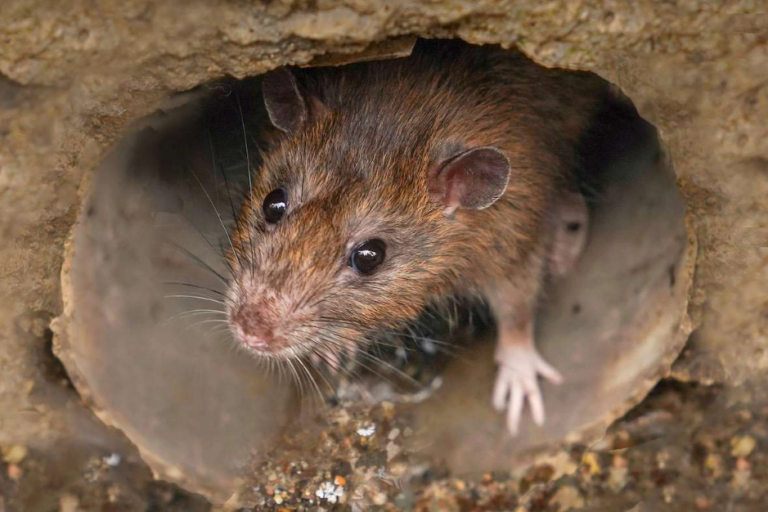Understanding The Reasons Behind Your Dog’s Nighttime Pacing

As a dog owner, it’s not uncommon to encounter restless nights when your furry companion seems unable to settle down and paces around the house. Nighttime pacing in dogs can be a frustrating and concerning issue for both pets and their owners. However, understanding the reasons behind this behavior is crucial in order to address it effectively.
In this article, we will delve into the various factors that might contribute to your dog’s nighttime pacing. By identifying the root causes, you can take steps to alleviate your dog’s discomfort and improve their overall sleep quality.
Anxiety And Stress
One of the most common reasons for nighttime pacing in dogs is anxiety and stress. Just like humans, dogs can experience anxiety, and it can be triggered by a variety of factors. Some dogs become anxious due to separation from their owners, loud noises like thunderstorms or fireworks, changes in routine, or unfamiliar environments.
An anxious dog may pace around in an attempt to find comfort or escape from the source of their anxiety. They might also exhibit other signs of anxiety, such as whining, panting, trembling, or excessive grooming. To help your dog cope with anxiety, consider creating a safe and comfortable space for them to retreat to, using calming techniques, or consulting with a veterinarian for potential medication or behavioral therapy options.
Physical Discomfort Or Pain
Dog pacing at night can also be a response to physical discomfort or pain. Dogs may experience pain from various sources, such as arthritis, injuries, dental issues, or digestive problems. When they lay down, the discomfort intensifies, prompting them to get up and move around in search of a more comfortable position.
If you suspect that your dog’s nighttime pacing is due to pain, it’s crucial to consult with a veterinarian. They can perform a thorough examination, identify the source of pain, and recommend appropriate treatment options, which may include pain medication, physical therapy, or dietary changes.
Lack Of Exercise And Mental Stimulation
Dogs are active animals that require both physical exercise and mental stimulation to stay happy and healthy. If your dog doesn’t get enough physical activity during the day, they may have pent-up energy that leads to nighttime restlessness. Inadequate mental stimulation can also contribute to boredom, which can manifest as pacing and other undesirable behaviors.
To address this issue, make sure your dog receives enough daily exercise, such as walks, playtime, and interactive toys. Engage their minds with puzzles and training sessions to tire them out mentally as well. A tired dog is more likely to settle down and sleep peacefully at night.
Age-Related Changes
As dogs age, they may experience changes in their sleep patterns and behaviors. Older dogs might develop cognitive dysfunction syndrome (similar to dementia in humans), which can lead to confusion, disorientation, and restlessness, especially at night. This condition can be challenging for both the dog and their owner.
To help your senior dog, provide a consistent routine, offer familiar surroundings, and consider consulting with a veterinarian for medications or supplements that may alleviate cognitive decline symptoms. Additionally, senior dogs may benefit from comfortable bedding and easy access to water and bathroom breaks during the night.
Fear Or Phobias
Dogs can have specific fears or phobias that become more pronounced at night. Common fears include thunderstorms, fireworks, or even specific objects or situations. When confronted with their fear triggers, dogs may start pacing in an attempt to escape or seek safety.
Managing fear or phobias often involves desensitization and counterconditioning techniques. Gradually exposing your dog to their fear triggers in a controlled and positive way, along with the help of a professional dog trainer or behaviorist, can help reduce their anxiety and nighttime restlessness.
Hormonal Changes
Hormonal changes can also play a role in nighttime pacing, particularly in unspayed or unneutered dogs. Female dogs in heat may display restless behavior, attracting the attention of male dogs. Unneutered males, on the other hand, may become agitated when they detect the scent of a female in heat nearby.
To address hormonal-related pacing, consider spaying or neutering your dog if they are not already altered. This can help reduce hormonal fluctuations and associated behavioral changes. Discuss this option with your veterinarian to determine the best course of action for your pet.
Environmental Factors
Environmental factors within your home can also contribute to nighttime pacing. Dogs are highly attuned to changes in their surroundings, and even seemingly minor alterations, such as rearranged furniture or new noises, can disrupt their sense of security.
To minimize the impact of environmental factors, try to maintain a consistent home environment for your dog. Avoid sudden changes or loud disturbances during their sleep hours. Providing a comfortable and familiar sleeping area can also help your dog feel secure and reduce restlessness.
Conclusion
Understanding the reasons behind your dog’s nighttime pacing is the first step in addressing this behavior effectively. Anxiety, physical discomfort, lack of exercise, age-related changes, fears, hormonal factors, and environmental factors can all contribute to your dog’s restlessness at night.
If you’re unable to determine the cause of your dog’s pacing or if the behavior persists despite your efforts, it’s essential to consult with a veterinarian or a certified dog behaviorist for a thorough evaluation and personalized guidance. With the right approach, you can help your beloved canine companion enjoy peaceful and restful nights once again.




